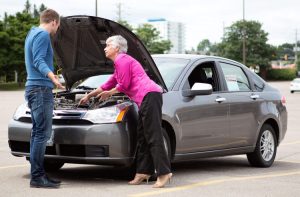
Buying a car is an exciting process. And in our excitement, we may often miss crucial details about the condition of the car. This is why it’s very important to get a pre-purchase inspection (PPI) done before sealing the deal.
You don’t want to be driving around in your car one day and have it suddenly stop working, would you? You’d be stranded on the side of the road with smoke coming out the engine…Okay, okay. I’m sure nothing as dramatic as that will happen, but still. You get the picture!
The best thing to do is to have an expert mechanic or car technician look at the car and give you the green signal. A PPI is especially helpful if you (the buyer) are not able to be there for the purchase for any reason, like if you’re in another city.
In any case, it is always wise to opt for inspection as you will be able to know about any previous damages, any current repairs, leakages, etc. There are about 50-200 points to cover in any inspection, and how many are checked depends on the type of inspection you pick.
Some companies offer only a surface inspection which is mostly a visual check of the whole car. They even check the underside for any structural damages.
Inspections can also cover an on-road assessment to test the car’s engine, braking systems, steering, etc. These give more detailed reports which might be more helpful before making a purchase.
When you’re looking for someone to do a pre purchase inspection for you, make sure you understand the prices and details of the package you choose. These inspections can cost anywhere up to $100 – $250 depending on what’s being inspected, as I’ve talked about before.
If you’re unsure of whom to approach for the inspection, start by talking to the local dealer (if you’re buying the car from them, that is). You could also do an online search (that’s how I assume you’re here!) for local companies who will do the job while also keeping you informed.
Talking to the buyer before the inspection is a good idea; you can talk to them about any previous damages and repairs. The inspection report can then validate this for you.
If there is anything that turns up on the report that you are not aware of, you might want to have a talk with the buyer. They might not know about it, and may need to get it repaired before you buy it!
Conclusion
It is always a good idea if both buyer and seller are aware of the inspection details, and some part of the contract mentions this. Once the inspections are cleared and you’re ready to buy, do the needful and finalize the deal!





